Detailed introduction of TTK University of Applied Sciences:
Introduction and Overview
School Positioning: TTK University of Applied Sciences is the largest university of applied sciences in Estonia, committed to providing competitive professional higher education and applied research, and excels in technology, production, civil engineering, logistics, economy and welfare.
Student size: Currently there are about 3,000 students, making it the fourth largest higher education institution in Estonia.
History and Establishment
The school's history can be traced back to the Tallinn Boys' Commercial School established in 1915, and the development of its professional fields can be traced back to the 1920s. In 1992, it was officially renamed TTK University of Applied Sciences.
School Strength
Teaching Staff: It has about 200 faculty members who provide professional guidance and support to students.
Teaching Facilities: It is equipped with advanced laboratories, workshops and other facilities to support applied learning methods and provide students with opportunities for practical operations so that they can better master professional knowledge and skills.
International Cooperation: It actively participates in international projects and has good regional cooperation with neighboring countries such as Finland, Latvia, and Sweden. It is also a member of international organizations such as the European Association of Higher Education (Eurashe) and the European Association of Universities of Applied Sciences (UAS 4 Europe). Through cooperation with many higher education institutions in Europe and other regions, it provides students with rich exchange and learning opportunities, such as participating in the Erasmus + program, giving students the opportunity to study or intern abroad and expand their international perspectives.
Institutional Nature
Public non-profit higher education institution.
Educational Philosophy
Emphasis on the principle of "Usus est magister" (Usus est magister) Optimus), focusing on cooperation with industry partners, carrying out practical teaching, allowing students to accumulate experience in actual operations, closely integrating courses with current market needs and trends, and cultivating professionals who can quickly adapt to the workplace and solve practical problems.
Key laboratories and disciplines
Key disciplines: covering multiple fields such as engineering, technology, architecture, and business management, such as civil engineering, mechanical engineering, electrical engineering, information technology, environmental engineering, automotive engineering, transportation and logistics, and international business administration. These majors have a certain degree of popularity and influence in Estonia and internationally, providing students with a wide range of professional choices and good career development prospects.
Key laboratories: No specific key laboratories are explicitly mentioned, but the school's laboratories and other teaching facilities are equipped in accordance with industry standards and practical needs, providing students with a practical environment similar to actual work scenarios, helping students to apply theoretical knowledge to practice and improve their ability to solve practical problems.
Department
The school has 6 There are 3 colleges, including the School of Architecture, the School of Civil Engineering, the School of Mechanical Engineering, the School of Electrical Engineering, the School of Information Technology, the School of Business and Management, etc. Each college has its own unique professional settings and teaching focus, which together constitute the school's rich and diverse discipline system.
Ranking
According to different ranking agencies and ranking indicators, TTK University of Applied Sciences ranks about 5709 in the world, about 1955 in Europe, and 11th in Estonia.
Expenses
Tuition fees: Tuition fees for different majors vary. For example, the annual tuition fee for the Bachelor of Business Administration is about 3,000 euros, the annual tuition fee for the Bachelor of Information Technology is about 3,500 euros, and the annual tuition fee for the Bachelor of Engineering is about 4,000 euros; the annual tuition fee for the Master of Business Administration is about 4,500 euros, the annual tuition fee for the Master of Information Technology is about 5,000 euros, and the annual tuition fee for the Master of Engineering is about 5,500 euros.
Living expenses: Compared with other European countries, the cost of living in Estonia is relatively low. The monthly living expenses of students (including accommodation, food, transportation, etc.) are about 500-800 euros. Around EUR.
Campus
Campus facilities: The main campus is located in Tallinn, the capital of Estonia. Since the fall of 2019, the school has also set up a branch in Modriku, West Viru County. The campus is equipped with a library, sports facilities, etc., providing students with a good learning and living environment.
Campus life: The school provides students with a variety of extracurricular activities and community organizations. Students can participate in various community activities according to their interests, such as sports clubs, cultural and art groups, etc., to enrich their extracurricular life and expand their interpersonal network. In addition, the school will also hold various academic lectures, seminars, cultural activities, etc., creating a strong academic atmosphere and a multicultural exchange environment.
-
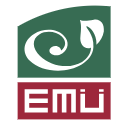
Estonian University of Life Sciences
-
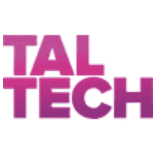
Tallinn University of Technology
-
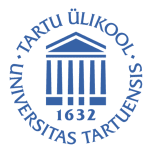
University of Tartu
-
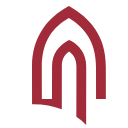
Tallinn University
-
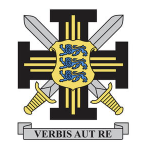
Estonian Academy of Security Sciences
-

Estonian School of Diplomacy
-
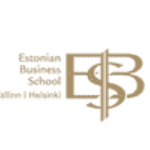
Estonian Business School
-

Estonian Academy of Arts
-
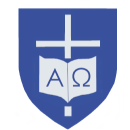
Institute of Theology of the EELC
-
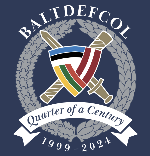
Baltic Defence College
-

Mesoamerican University
-

Istmo University
-

Mariano Galvez University of Guatemala
-

Regional University of Guatemala
-

Galileo University
-

Francisco Marroquín University
-

Rafael Landívar University
-

University of the Valley of Guatemala
-

University of San Carlos of Guatemala
-

Technological Institute of Tlaxcala Plateau
-

Golfo University
-

Technological University of South Sonora
-

Technological University of Huejotzingo
-

Tizimín Institute of Technology
-

Chilpancingo Institute of Technology

